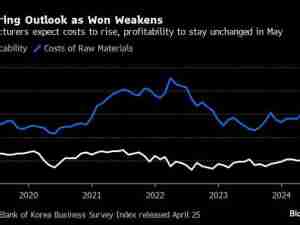US readies duties on Mexican sugar, prices tipped to rise
By: Reuters | Aug 28 2014 at 01:38 PM | International Trade
The United States is set to slap import duties on Mexican sugar in a move that could push up candy and soft drink prices for U.S. consumers and incite retaliation from Mexico, which is keen to agree a deal to avoid the new levies.
The duties announced by the U.S. Department of Commerce will bolster prices for U.S. sugar but mean companies like sweet makers Hershey Co and Mondelez International Inc will have to pay up to 5 cents per pound extra for imported sweetener, based on current refined sugar prices of around 30 cents per pound.
The preliminary decision in favor of U.S. sugar producers, who complain of unfair competition from subsidized Mexican sugar, could still be overturned but marks an early win for the powerful U.S. sugar lobby in the industry's first trade case in decades.
Sugar shipped from state-owned Mexican mills faces duties of 17.01 percent, while the Commerce Department set a rate of 2.99 percent for private sector producer Tala, owned by Grupo Azucarero Mexico, and 14.87 percent for all other producers, the department said in a statement.
Mexico nationalized many struggling sugar mills in 2001 and government-owned mills provide a fifth of the country's sugar.
U.S. sugar producers, who themselves benefit from an intricate network of government supports and managed trade, say a sharp rise in Mexican imports drove a collapse in local prices, hurting local growers, mills and refiners and costing them nearly $1 billion in net income.
Juan Cortina, president of the Mexican sugar chamber, said the Mexican sugar industry is prepared to agree to a deal that limits sugar exports to the U.S., but said any agreement would have to fix an export minimum of at least 1 million tonnes per cycle.
He said the chamber believed a deal could be reached before the U.S. resolves the anti-dumping section of the case in October -- which could lead to more duties.
Consumers Pay the Price
U.S. Agriculture Secretary Thomas Vilsack has said he would encourage a settlement, but U.S. lawmakers, food manufacturers and commercial users of sugar have warned a deal would inflate food prices and threaten U.S. food manufacturers.
They argue the case could also prompt Mexico to retaliate on other products like high-fructose corn syrup, inflating the cost of a key raw material, and undermine free trade across the continent under the North American Free Trade Act. The United States is a net sugar importer.
Mexico's Economy Ministry described the U.S. decision as a setback in trade relations between the neighbors and said Mexico will defend its rights and exhaust the legal options to protect its interests under the aegis of NAFTA and the World Trade Organization.
"I think this is an area where consumers would be a lot better off if the market were simply allowed to operate freely without either government intervention or deals being cut by the growers," said Bill Reinsch, president of the National Foreign Trade Council.
"The likely result is that the growers, particularly in the United States, will make more money, and the consumers will pick up the tab."
Concerns about tightening supplies in the United States, even as the global market remains in surplus, have pushed domestic prices up 18 percent since the case was filed in March.
One U.S. sugar importer described the duties as "devastating." "We're apparently going to be short of sugar in the United States market, so prices will come up to a level that compensates for any duty," he said.
Still, traders had expected the Commerce Department to find in favor of U.S. producers, who complain Mexican sugar is sold in the United States at prices 45 percent or more below fair value.
Second-month U.S. domestic raw sugar futures traded in New York jumped 2.7 percent to a two-week high of 26.75 cents a lb in thin trade after the news but pared the gains by its close.
In one sign of early fall-out from the case, U.S. sugar supplies are forecast to fall to critically low levels in the 2014-15 season as state-owned Mexican mills sell sugar to non-U.S. destinations.
The U.S. International Trade Commission is conducting a parallel investigation into whether the imports injure local growers. The ITC found in favor of U.S. producers in its preliminary decision, and a final verdict is due in February. (Reuters)








